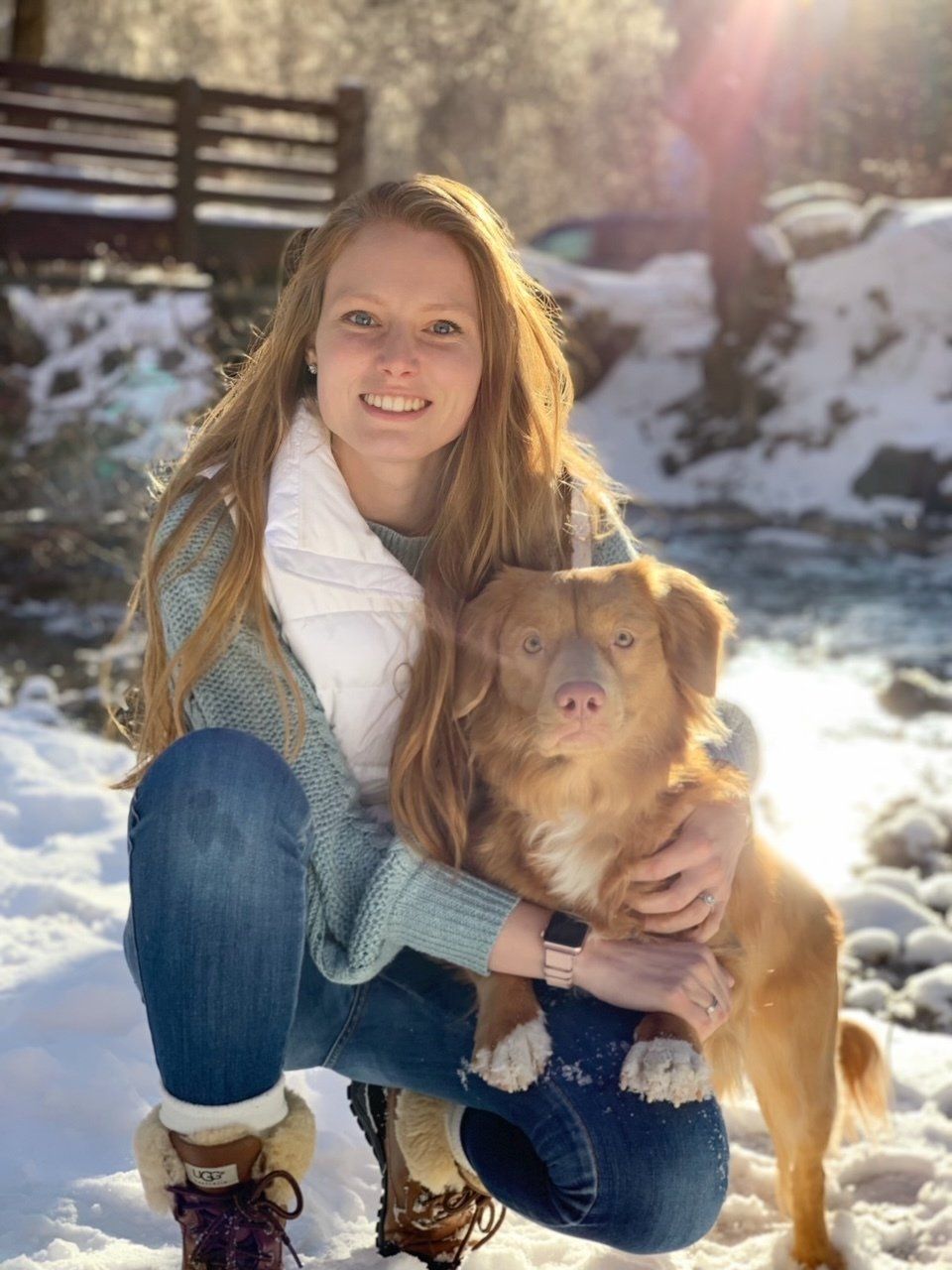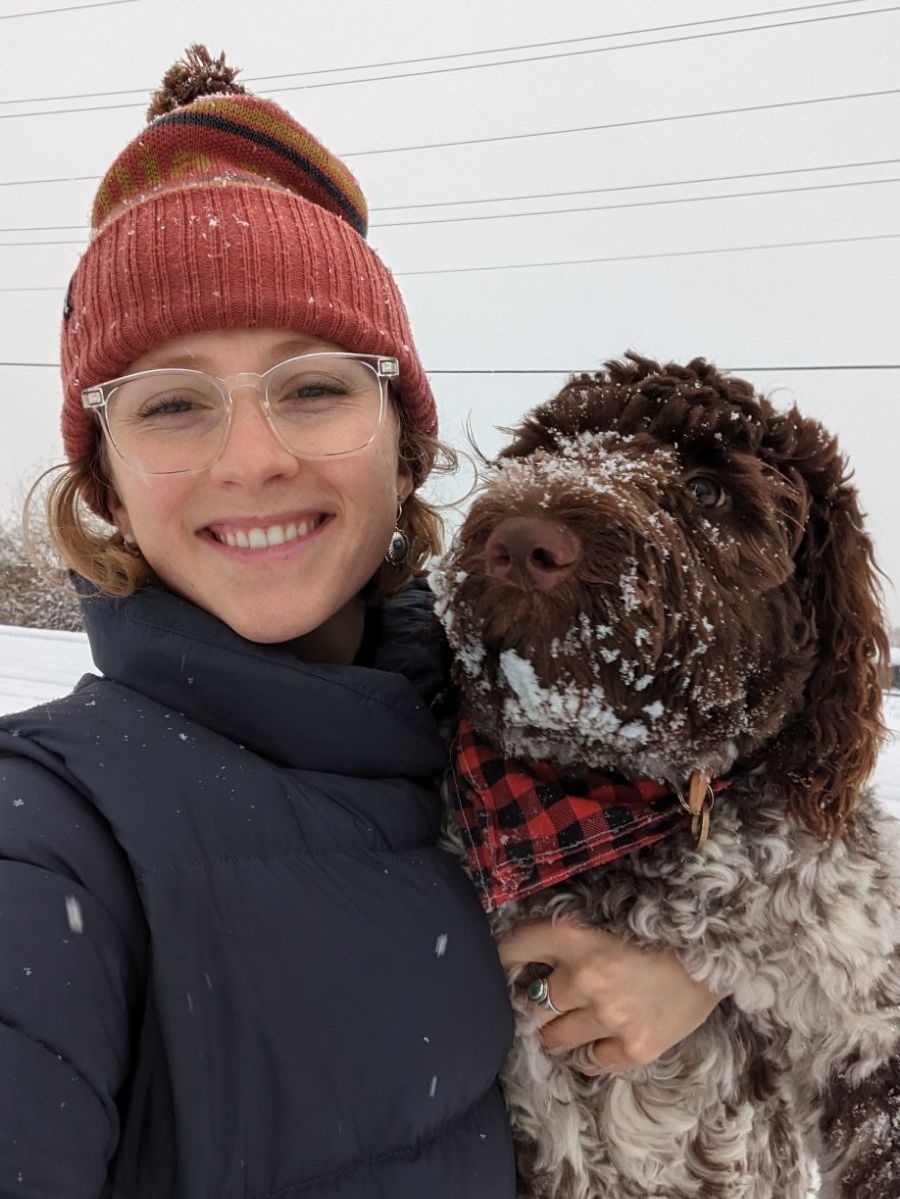Meet Our Service & Therapy Dogs

Harper
Therapy Dog
Harper is a 5 year old Nova Scotia Duck Tolling Retriever. Harper has been working with Erica seeing therapy clients for over a year and completed her therapy dog training through Molli Dogs in October 2022. Harper has a special way of connecting with clients who would otherwise be reluctant to attend or participate in therapy. She especially loves working and playing with children!

Pippin
Therapy Dog
Pippin is a 2 year old sheepadoodle, who loves hikes, paddleboarding, and making new friends! She is energetic and full of personality, but loves a good cuddle and belly rub. When Pippin came to me as a puppy she was anxious about a lot of things, but with practice has overcome many of her fears, using similar tools that I teach my clients! Now Pippin is a source of calm energy in sessions and connects especially well with anxious and shy clients. This year Pippin and I have completed a therapy dog and handler training together through Molli Dogs. We look forward to meeting you!
What is the differences between an ESA, a Therapy dog and a Service dog?
An emotional support animal (ESA) is a pet with no formal training such as obedience training.
A therapy dog is a dog who has gone through obedience training and can go to hospitals to offer comfort, schools to read with children, or therapy offices to offer emotional support. A therapy dog will wait to be invited to engage with people. Therapy dogs welcome touch to provide comfort and connection to people they come in contact with.
Service dogs go through obedience training and go through an assessment to determine if they are allowed to continue on to specialized training. There are many different kinds of service dogs such as scent dogs who sense if their handler is about to have an episode (ie severe allergies, seizures, etc.), task dogs who assist their handlers with tasks the handler can't do, and so many more! Service dogs, by Utah law, are allowed to go wherever their handler goes since they are performing tasks to assist their handler with functioning in their daily life. Service dogs can also be used to help other people other than their handler as long as those people have consented to that.







